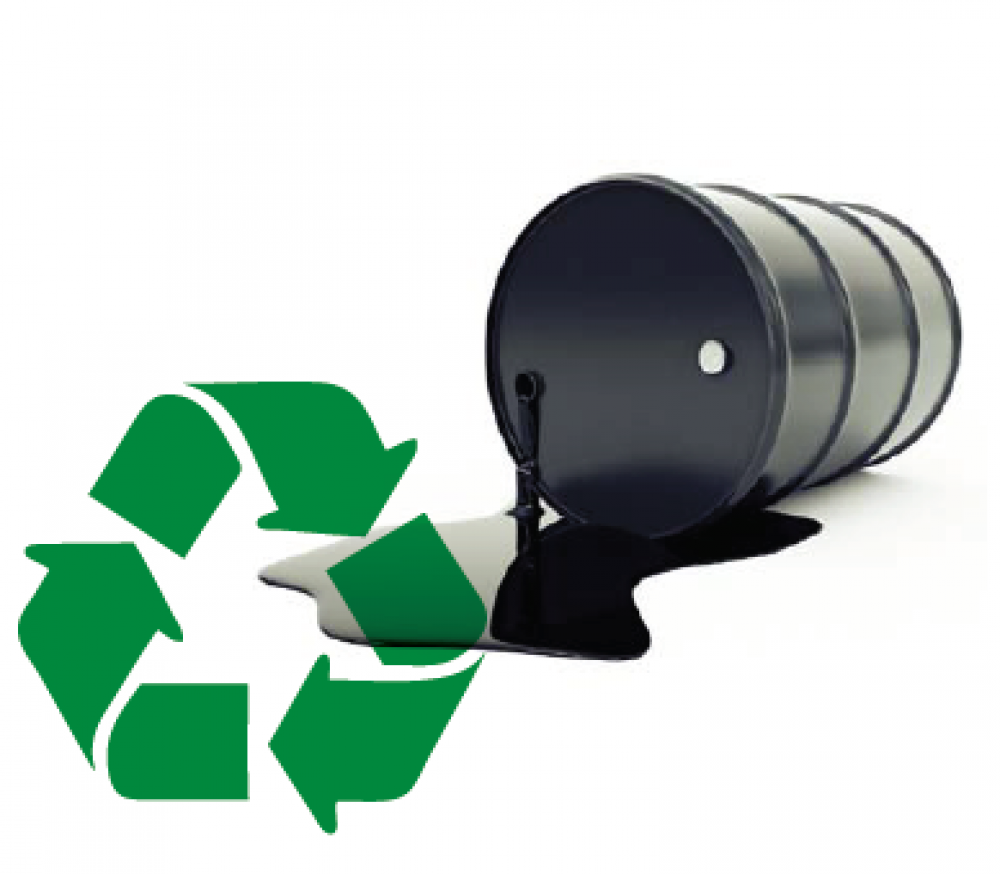Waste oils, how the industry began
Just one year ago, there was no waste oil industry in Saint-Martin. In other words, the clean disposal of motor oil was not possible on the French side. Since then, the company Verde SXM which operates the Grandes Cayes eco-site has established the industry with the help of Ademe and 80 tons were collected in Saint-Martin in 2015. But it wasn't easy.
It all started in January 2012 when the prefecture launched a call for applications; at that time, the aim was to select a company which could collect waste oils, store them and then send them to the mainland to be processed and recycled. The company Verde SXM then cued up after having filed an application for certification in June of the same year. Five months later, it signed an agreement with ADEME (the Departmental Agency for the environment and environment management) of Guadeloupe. "In 2012, we focused on administrative procedures," explained Patrick Villemin, co-director for Verde SXM.
In 2013, the company conducted (with a consulting firm) a study for the establishment and analysis of the industry in Saint-Martin. But the hardest part still lay ahead, said Patrick Villemin not without irony.
TRANSPORT AUTHORIZATION
Indeed, waste oils are considered as hazardous products and transporting them by land and sea requires special authorizations. "In fact, an authorization from each country to be crossed is necessary," explained the director. The first request was filed with Sint Maarten since the oils are sent to Mainland France by boat from Philipsburg. Then, requests for authorizations had to be filed in the countries in which the boat would stop. "At the beginning, it was supposed to stop in St Kitts where we, therefore, filed for authorization. Then, the stop was modified, and the boat was scheduled to pass by Antigua where we repeated the same procedure", added Patrick Villemin. In Europe, the itinerary was equally difficult since once the same boat arrived in Dunkerque, the oils could not be unloaded to be routed to Seine-Maritime, the final destination. It, therefore, had to set off for Bruges in Belgium, yet another third country and therefore a new authorization, before returning to Le Havre, the port of arrival.
130 TONS SHIPPED
The first tanker was therefore successfully sent at the end of January 2015. Not without difficulty once again. "As the oils had remained in storage for too long in Saint-Martin, they could not be recycled at the place of shipment. So we had to send them to another site, still in Seine-Maritime, in order for them to be incinerated," said Patrick Villemin whose determination has not - it seems - been weakened. In all, nearly 130 tons have been shipped.
Verde SXM works in partnership with JPS, a company created two years ago by José Duzanson to cover this market for collecting oils. "Today, we have about forty clients, mainly garage mechanics, who keep the waste oils which I pick up once a month, or even more often if the company calls me," explained José Duzanson, who has set up a turnover schedule. His pickup truck is equiped with a special pump which was purchased by Verde SXM. The oils are then stored at the eco-site in 25m3 tanks.
INCREASE THE VOLUME COLLECTED
Today, the objective displayed by all the partners is to increase the volume of oils that are collected. Therefore, Verde SXM would like to equip mechanics with specific and appropriate containers to facilitate the collection. For its part, the ADEME has just launched a communication campaign to raise awareness on this issue among professionals and individuals. Although garage owners and mechanics are indeed obliged to recover waste oils, individuals must deposit them at the waste recycling center. Deposits are free, as well as the collection for professionals. The collection with the transportation is paid for by Verde SXM, who is financially sponsored by the ADEME until 2018.
FACTS
- Waste oils are recycled either by being incinerated in cement kilns, or they are regenerated. In both cases, they are recycled in metropolitan France in order to comply with European standards. Although the United States is closer, they cannot recover them. The cost of maritime transport is extremely high, 300 € per ton.
- Dutch-side mechanics will not be sollicited for the collection. The ADEME, a State agency, is sponsoring the service for the French side. It would, therefore, seem somewhat out of place to go to Sint Maarten to pick up this waste free-of-charge for the neighboring country.
- 1 liter of waste oil pollutes 1 m3 of soil









